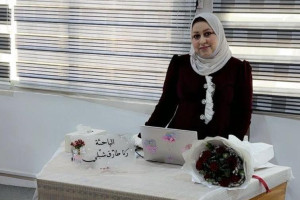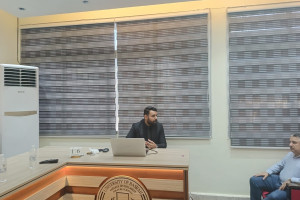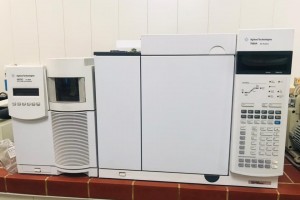
Prof. Dr. Adel Amala Damad, in the Department of Chemistry - College of Education for Pure Sciences - University of Basra, published a research entitled
FeC19 cage vehicle for fluorouracil anticancer drug delivery: DFT approach
In: Journal of Molecular Liquids
Impact factor: 5.065
In the publishing house: Elsevier
It is included in the container: Clarvet and Scopus
Summary
This work was carried out by the importance of nanostructures applications in drug delivery processes especially for anticancer consumption. Fluorouracil (FU) is a well-known anticancer drug, the loading of which on the surface of the FeC19 cage compound was examined by performing density functional theory (DFT) calculations. The cage used was actually an iron-doped model of the C20 cage to provide surface reaction with FU. Seven initiation modes (S1 to S7) were previously identified for FU to participate in cage interaction to provide complex from S1 to S7. The optimized architectures of six of them were properly achieved, but the S5 architecture was not achieved even by performing long hours of optimization. The high strength of the obtained complexes agreed with the complex configuration of the models and indicated the potential role of such exogenous metallic nanoparticles (MNP) for targeted drug delivery processes. Moreover, the complexes themselves were ranked by level of strength, with S2 and S4 being presented as the strongest and weakest models, respectively. The energies analyzes also approved such achievements in addition to confirming the results obtained by the quadrupole coupling constant (QCC) parameters of the atomic scale. Based on these features obtained from the detailed information, FU@FeC19 complexes have been proposed for drug delivery process.








